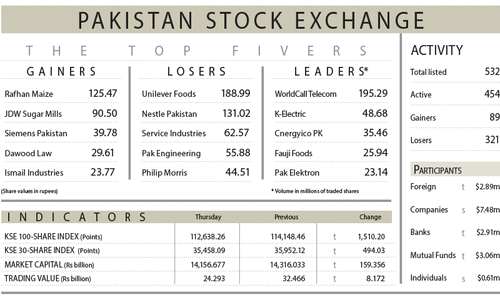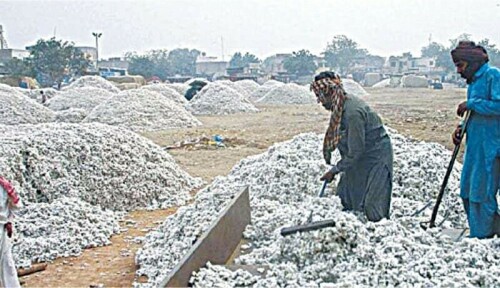LONDON: China’s virus has roiled commodity markets as traders assess the epidemic’s economic impact on a nation heavily dependent on raw materials.
Base metals such as copper have in particular suffered since mid-January, while oil has recovered somewhat after heavy falls and haven investment gold has benefitted.
“Commodity prices, and energy prices in particular, have been hard hit by the outbreak of coronavirus in China and the prospect of lower global commodities demand,” said analyst Caroline Bain at Capital Economics research group.
“There is still too much uncertainty to factor the virus into our forecasts,” she added, as China delayed the release Friday of its latest trade data.
Copper, considered a barometer of the economic cycle, has slumped almost ten percent since mid-January, when fears over the virus began to heavily influence direction of financial markets.
China is the world’s biggest importer of major commodities and has a voracious appetite in particular for base metals.
In line with most commodity and equity markets this week, copper has however managed a rebound to stand at $5,660 per tonne on Friday from $5,567 a week earlier.
Also since the middle of last month, aluminium remains 5.0 per cent lower in value and tin 8pcdown despite their prices beginning to recover.
Sucden analyst Liz Grant said commodity prices are starting to fight back also after China on Thursday said it would halve tariffs on $75 billion worth of US imports.
“While this move is in part connected to the phase 1 US/China trade agreement, it was also widely viewed as an attempt to ease investor anxiety around the economic impacts of the virus,” she said.
For gold, the situation was different. Considered a haven investment in times of economic unrest, the precious metal initially profited from fears of a virus-fuelled economic slowdown.
By Friday however, gold stood at $1,566.93 an ounce, down from $1,589.16 a week earlier.
Among soft commodities, most this week “fell owing to fears of lower Chinese demand” according to Bain, the analyst pointed to a few exceptions.
“The price of sugar rose owing to a lower Asian harvest and lumber benefitted from data pointing to strong growth in the US housing sector,” she said.
Published in Dawn, February 8th, 2020















































Dear visitor, the comments section is undergoing an overhaul and will return soon.